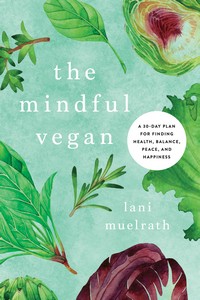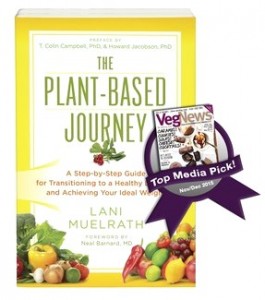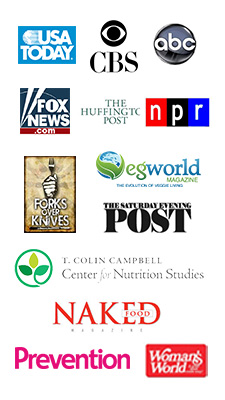What does ‘vegan’ mean, anyway? And what does a vegan eat?
The answer may seem obvious to readers at the Plant-Strong Fitness Blog, yet it’s one of those questions that is never too silly to ask and begs a specific spot for an answer and an easy reference. After all, there’s plant-strong and plant-based. There’s vegetarian, which seems to have gotten diluted over the years with dairy and eggs. And then there’s my husband’s decades-old definition, “eat nothing with a mother or a face”.
A vegan diet includes all grains, beans, legumes, vegetables and fruits, nuts and seeds, and the nearly infinite number of foods made by combining them.
A vegan diet excludes any animal products: meat, fish, dairy, poultry, honey, and eggs for example.
Some people who follow a vegan diet also embrace a vegan lifestyle, which means passing on the use of leather goods or any items or foods using animals in their processing.
Where did the word ‘vegan’ come from?
 When Donald Watson, founder of the Vegan Society, coined the term vegan in 1944, it was specifically to disassociate from vegetarians who also eat dairy and eggs. The primary unifying principle with the original members of the group – originally called an association of “non-dairy vegetarians” was the humanitarian opposition to the use of dairy products for humanitarian reasons.
When Donald Watson, founder of the Vegan Society, coined the term vegan in 1944, it was specifically to disassociate from vegetarians who also eat dairy and eggs. The primary unifying principle with the original members of the group – originally called an association of “non-dairy vegetarians” was the humanitarian opposition to the use of dairy products for humanitarian reasons.
Watson struggled with what to name these dietary practices himself. When considering the term ‘non-dairy’ didn’t address the use of eggs and he wanted a name that was more pro-active. Something that would state what he DID eat as opposed to what he did NOT eat.
An interesting read with this very debate – what to name this non-dairy, non-animal foods way of eating – can be found in the first edition of the Vegan News:
Click HERE to read the Vegan News first edition, November 1944
Does ‘vegan’ mean healthy?
It should be pointed out that a vegan diet is not necessarily healthy – depending. I could eat soda pop and french fries all day and be following a vegan diet, though it certainly wouldn’t be healthy.
This is where the heroes such as Drs. Campbell, McDougall, Esselstyn, Barnard, Ornish, and Fuhrman et al come in, completing the picture and pointing the way to compassion teamed with healthy practices. As a matter of fact, you’ll find that these plant-strong dietary luminaries prefer to use the word “plant-based”, “nutrarian”, and “starch based” over the term ‘vegan’ for it implies important health considerations as well.
P.S. Are you getting all the news that’s healthy, fit, happy and hot each week? Click here to join 1,000′s of others + get your weekly health, body shaping and food advice for free from the Plant-Strong Fitness Expert.





Very interesting! I hadn’t heard of Watson and reading this history is fascinating. Love the copy of the newsletter from 1944 –
I think it’s important to point out the difference – healthy vs. unhealthy. Your article gives me some good tools for explaining to others when the subject comes up.
Thanks for posting this article – it’s a good place to send others so it can save me some time and trouble.
Cynthia
Cynthia, you’re welcome, and that was exactly my intention: not only to clarify but to give readers an easy reference link. Having all this stuff in your head just ain’t always possible and when info is a link away, well, how sweet is that?
I appreciate your comments today – thanks!
Lani